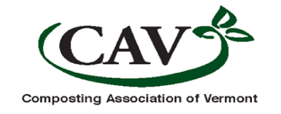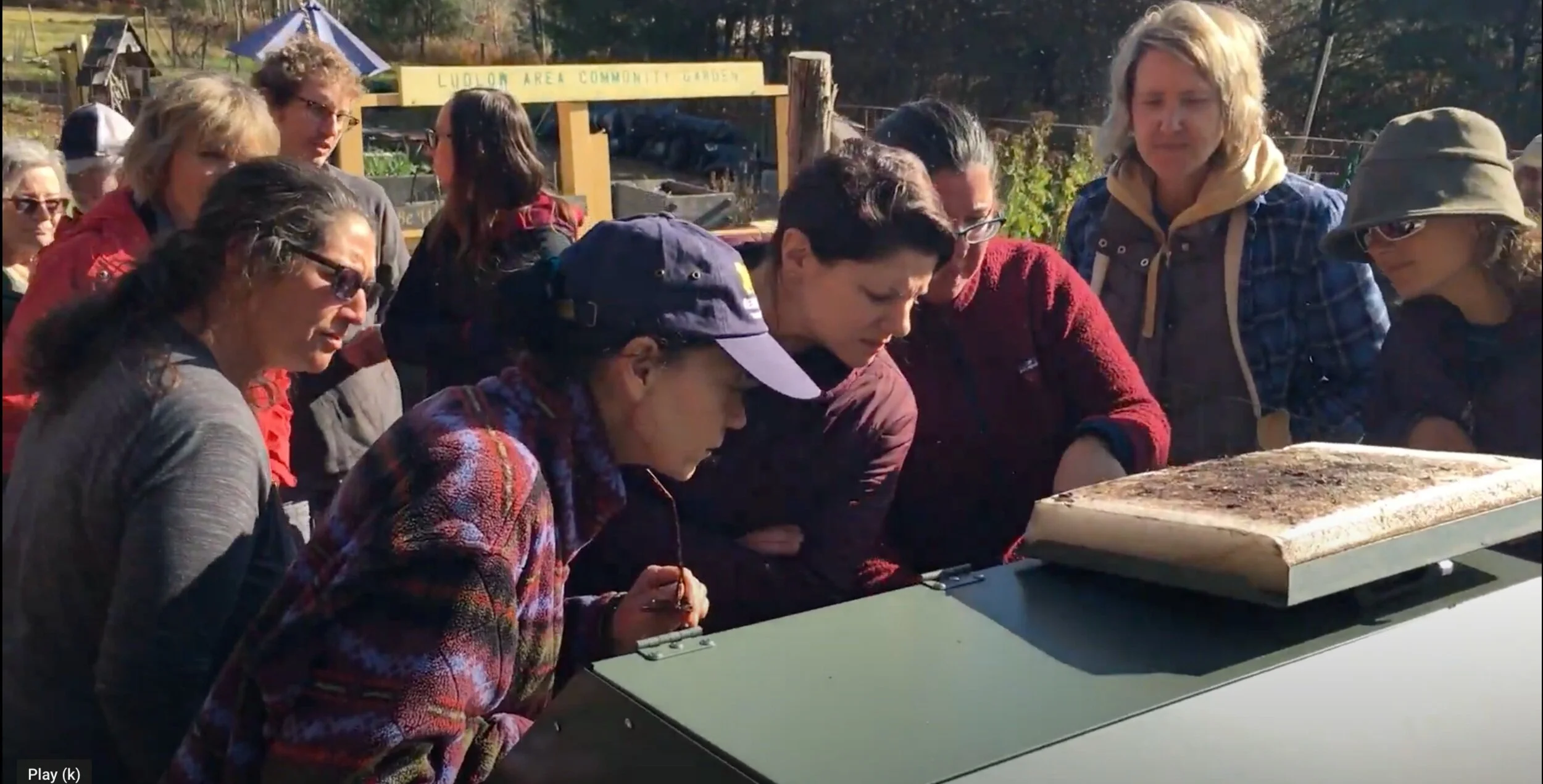Introduction to Community Composting
This module provides an overview of community compost, the benefits it provides to participants and their wider communities, and includes a summary overview, a tip sheet on community composting regulations, as well as a recorded webinar (Getting Started).
In 2017, as part of the Community Composting at Community Gardens project, CAV partnered with the Northeast Recycling Council and the Vermont Community Garden Network to provide a webinar about getting started with food scrap community composting.
NERC, CAV, VCGN. July 2017 (54:35)
This webinar provides an overview of community-scale composting and talks about:
Support & Volunteer Assessment
Feedstock Collection
Siting Considerations
Managing the Compost System
Troubleshooting
Regulations
Download the slide deck (pdf)
Additional Introductory Training Slide Decks (pdfs):
Tip Sheets
Organics are one of the few materials that can be entirely managed locally. Community composting normalizes composting at all scales – from backyard to commercial.
Community Composting Regulations
The regulatory environment for community composting can be complex, potentially involving state rules & regulations, local zoning and building codes, and possibly a hauling permit (if offering off-site collection).
Community Composting Systems Overview
Community composting can be done in many ways. The “best” way is the one that meets the needs of your compost site’s unique circumstances
Depending on the skills of compost team members for site preparation, bin construction, fundraising, and networking, the start-up costs for community composting can be minimal. This tip sheet helps organizers think through budgeting for their site as well as identifying potential sources of in-kind or financial support.
Starting small means that any issues that might arise as the compost team works on recipe development and system management are also small. It’s best to plan operations according to the compost team’s and the site’s limiting factors. Operations can always be modified or expanded as circumstances change.
Site plan development is integral to the initial and ongoing success of a community compost operation. Whether just beginning to plan a community site, or thinking about modifying an existing one – it’s always good for compost teams to think about or review their Site Plan.
When starting a composting program, neighbors, volunteers, staff, and even people in the larger community may have questions about the health and safety of the project. Everyone involved with the collection of food scraps and community composting should follow Health and Safety Guidelines.
See these specific guidelines for school projects
Compostville at the Garden at 485 elm st, Montpelier, VT
More Resources
Community Composting in the Time of Covid-19
Diverting food scraps and other organic waste is an essential solid waste management service. Practiced safely, composting brings communities together while allowing social distancing, provides healthy outdoor activity, and fosters other positive activities, including gardening.
Community Food Scrap Composting Readiness Guide
This guide is intended to support groups interested in starting small-scale community composting at schools and community gardens, as one solution to be incorporated into a broader community plan for organics waste management.
Community Composting Done Right: A Guide to Best Management Practices from the Institute for Local Self Reliance


